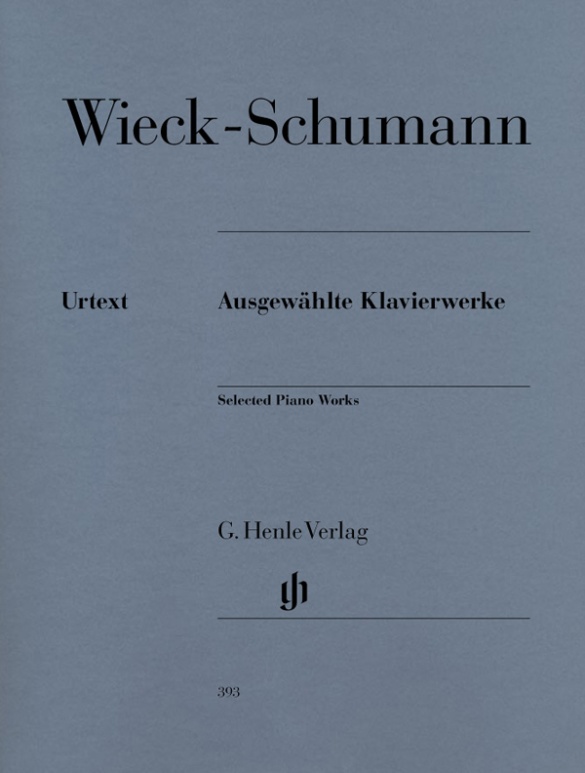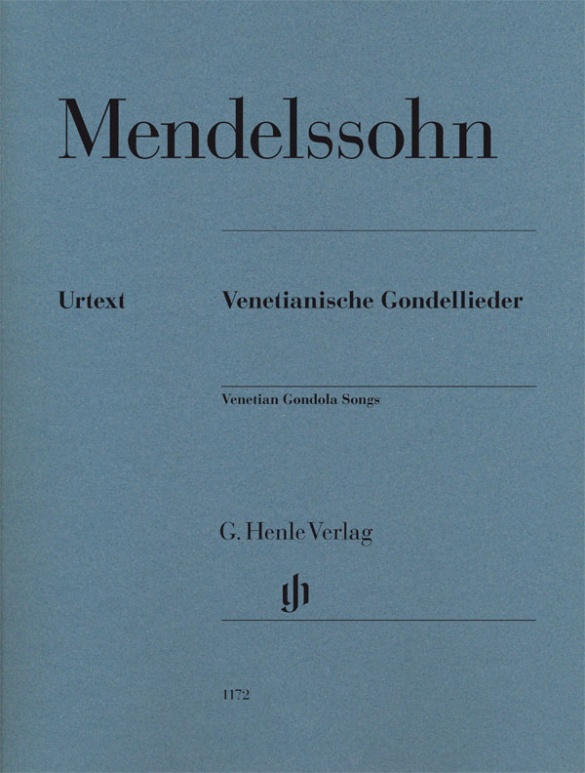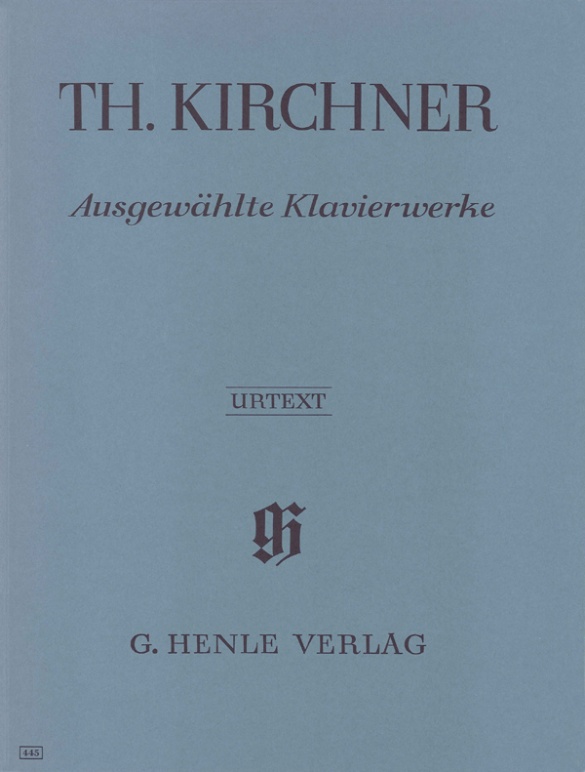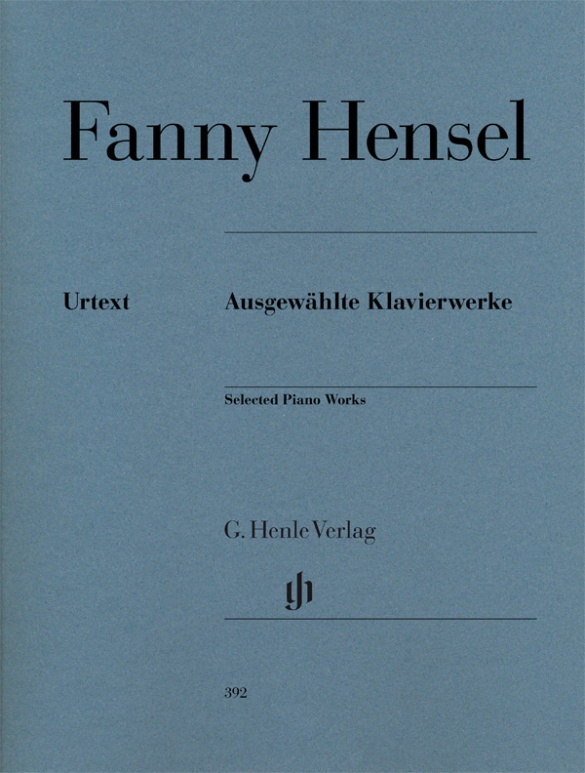

Fanny Hensel
Oeuvres choisies pour piano
La sœur de Felix Mendelssohn Bartholdy, Fanny Hensel, composa tout au long de sa vie. Elle commença par publier ses lieder et ses œuvres pour piano sous le nom de son célèbre frère, mais bientôt aussi en son nom propre. Dans l’une des annotations de son journal intime, on peut lire: «Je ne peux nier que la joie de voir ma musique publiée augmente ma bonne humeur». Heureusement, l’arrière-petite fille de Fanny Hensel, Fanny Kistner, nous a permis l’accès à une sélection de onze pièces pour piano jusque-là inédites et s’est occupée elle-même de leur édition d’après les manuscrits originaux. Les morceaux à vocation pédagogique des débuts sont suivis de toute une série de pièces de caractère plus personnelles telles que le nocturne en sol mineur ou «Adieu à Rome» composées à partir du milieu des années 1830 et classées ici de manière chronologique.
CONTENU/DÉTAILS
(Explanation)
CONCERNANT LE COMPOSITEUR
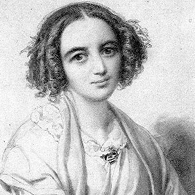
Fanny Hensel
La compositrice et pianiste a laissé une œuvre considérable d’environ 460 compositions, principalement des lieder et des compositions pour piano ainsi que quelques œuvres de musique de chambre, des œuvres chorales, des cantates et une ouverture. Elle exécuta elle-même (aussi en tant que cheffe d’orchestre), dans le cadre du salon familial de ses parents, ses compositions qui ne sont pas en reste face à celles de son frère Felix Mendelssohn Bartholdy.
| 1805 | Née le 14 novembre à Hambourg, elle est la fille aînée du banquier Abraham Mendelssohn. |
| 1811 | Déménagement à Berlin. |
| 1816 | Les enfants sont baptisés protestants. Cours de piano auprès de Marie Bigot pendant un séjour à Paris, à Berlin chez Ludwig Berger. |
| 1819 | Cours de composition avec Felix auprès de Carl Friedrich Zelter; composition de Lieder. |
| 1820 | Entrée, en compagnie de Felix et de sa jeune sœur Rebecka, à la Singakademie dirigée par Zelter. |
| 1821 | Les premiers dimanches musicaux, parfois publics, ont lieu dans la demeure des Mendelssohn. Fanny se produit en tant que pianiste, plus tard comme cheffe d’orchestre et compositrice. À partir de 1831 elle en assure la direction. |
| à partir de 1825 | publication anonyme de ses propres compositions. Les lieder «Das Heimweh» (le Mal du pays) (1824), «Italien» (1825) et «Suleika und Hatem» (1825) paraissent dans les recueils op. 8 (1827) et «Sehnsucht» (Nostalgie) (1827), «Verlust» (Perte) (1828) et «Die Nonne» (1822) dans l’op. 9 (1830) de son frère. |
| 1829 | Elle épouse Wilhelm Hensel, peintre auprès de la cour de Prusse. |
| 1830 | Naissance de son unique fils Sebastian Ludwig Felix. Cantates «Lobgesang» (dédiée à son fils), «Hiob» et «Choleramusik» (1831), «Zum Fest der heiligen Cäcilia» (1833). |
| 1831/32 | Air de concert «Hero und Leander». |
| 1838 | Exécution du 1er concerto pour piano de Felix, sa seule apparition en public qui soit documentée. |
| 1841 | Cycle pour piano «Das Jahr» avec des tableaux de son mari. |
| 1843 | Sonate pour piano en Sol mineur – confrontation avec les œuvres de Beethoven. |
| 1846 | Publication des «Six Lieder pour une voix avec accompagnement au pianoforte» op. 1, la première à paraître sous son propre nom. «Quatre mélodies pour le pianoforte» op. 2, op. 6 (1847), op. 8 (1850), pendant aux Mélodies sans paroles de Felix, aux harmonies hardies et de grandes dimensions. |
| 1847 | Meurt le 14 mai des suites d’un accident vasculaire cérébral lors d’une répétition en vue d’un dimanche musical à Berlin. |
About the Authors
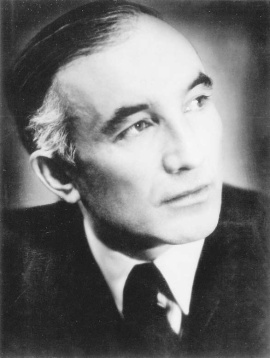
Hans-Martin Theopold (Doigtés piano)
Prof. Hans-Martin Theopold, was born to a pastor’s family in Detmold on 22 April 1904, the youngest of five children. Even as a child he often played the organ in the “Marktkirche” and soon began to take piano lessons with Theodor Vehmeier. At the age of 17 he made his debut at the Landestheater in Detmold with Ludwig van Beethoven’s Piano Concerto in C major under Friedrich Quast (Herford). Following the successful completion of his schooling at the Gymnasium Leopoldinum in Detmold, he went on to study music and piano (main subject): from 1922–23 at the “Württembergische Hochschule für Musik” in Stuttgart (with Max Pauer, 1866–1945) and then from 1923–1928 at the “Staatliche Akademische Hochschule für Musik” in Berlin-Charlottenburg (with Richard Rössler, 1880–1962, and Waldemar Lütschg, 1877–1948). After completing his piano studies (graduating with “very good”) in 1928, he began an active solo career both at home and abroad (USA, Switzerland, Scandinavia, the Baltic states, the Balkans). As a member of the Chamber Music Association of the State Opera in Berlin (from 1933) he also gave countless chamber music concerts, including ones with his violin partner Gustav Havemann (1882–1960).
In the 1930s, audiences and the press alike raved about Theopold’s extraordinary gifts as a pianist: “This young player has it in him to soon become one of the best players in Germany. A superior technique, a wonderful singing piano tone, the strength of a Titan, but not at all hard due to the incomparably gentle elasticity of his touch” [Münchener Zeitung, 21 November 1933]. – “H.M. Theopold gave convincing proof of his splendid pianistic ability in an extremely gripping sonata with a modern idiom by Alban Berg, but predominantly in Schubert’s […] Wanderer Fantasy, which he played with a polished technique and creative power” [Weser-Zeitung, 21 December 1932]. Theopold was awarded several prizes, including the “Grotrian-Steinweg-Preis” in 1928.
In 1937 Theopold became a teacher for the piano (main subject) at the “Bayerisches Staatskonservatorium der Musik” in Würzburg. In 1939 he married Irene Tatjana Wülfing, who was from Moscow. From 1943 he became head of the piano master-class at the “Nordische Musikschule” in Bremen, although this was interrupted by the events of the war. Following his return from a prisoner of war camp, Theopold gave concerts and taught although he did not hold a permanent position. From 1955–1956 he was acting head of the piano master-class at the “Bergisches Landeskonservatorium” in Wuppertal, finally being appointed Professor for Piano on 1 April 1956 at the “Staatliches Institut für Schul- und Volksmusik” in Detmold, later at the “Nordwestdeutsche Musikakademie Detmold” (today “Hochschule für Musik Detmold”), where he taught for decades. On 30 September 1969 he retired. “His students extol his pedagogical gifts. […] Humour, charm, helpfulness and kind-heartedness moderate the strictness of his professional ethos as a musician and teacher” (Lippische Rundschau, 23 April 1969; see also: Lippische Landeszeitung 22 April 1969 on the occasion of Theopold’s 65. birthday: “Prof. Theopold, a modest but at the same time energetic man, is an enthusiastic teacher”). Theopold died in Detmold in 2000.
Contact with Günter Henle was established directly after the publishing house was founded, when Theopold thanked the publishers with great enthusiasm for its first Urtext editions. His extensive correspondence with the publishing house was bequeathed to the Lippische Landesbibliothek in 2014 to ensure its long-term accessibility to the public. The letters testify not only to Theopold’s great interest in musical sources and text questions but also to his initial strict refusal (!) of fingerings in text-critical editions such as these: “For fingerings are and remain something individual no matter what their quality” (letter to Günter Henle from 26 May 1949 {publishing house archives}). Günter Henle was not, however, to be swayed and stressed the necessity of fingerings in his Urtext editions: “It is better to publish the Urtext […] with fingerings that are not necessary for a few individuals, or that might even, I admit, be considered irritating here and there” (letter to Hans-Martin Theopold of 17 September 1953).
It was only in 1955 that Theopold accepted Günter Henle’s offer of contributing fingerings for an Urtext edition that was in the process of being prepared by way of trial. (HN 74, Schubert, Complete Dances for Piano, Volume 1). Following this, Theopold was commissioned to write the fingerings for nearly all of the publishing house’s new editions in quick succession. Günter Henle, himself a good pianist, greatly valued Theopold’s fingerings, and also the many suggestions regarding the musical text in question. In addition, Theopold was always very reliable, thorough and conscientious – something that is not unimportant with editorial work!
Thus to date Hans-Martin Theopold has provided the fingerings for the greatest number of Henle Urtext editions by far – 226 editions (!) in total.
We would like to thank Mrs Margot Theopold and the Hochschule für Musik in Detmold for their great support in providing biographical material.
G. Henle Verlag
Informations sur la sécurité du produit

G. Henle Verlag
Vous trouverez ici des informations sur le fabricant du produit.G. Henle Verlag e.K.
Forstenrieder Allee 122
81476 München
Allemagne
info@henle.de
www.henle.com
recommandations
autogenerated_cross_selling
Autres éditions de ce titre
Autres éditions de ce titre


